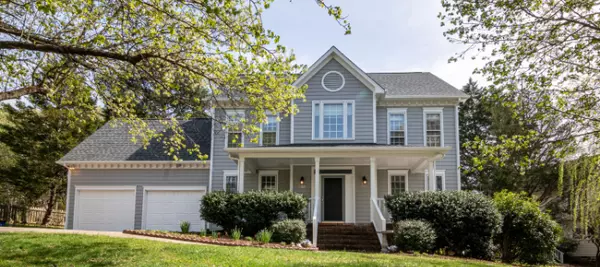What's The Smartest Move When The Housing Bubble Bursts?
What's The Smartest Move When The Housing Bubble Bursts?

The housing bubble burst will have the effect of a tidal wave on the Canadian housing market.
Are you prepared for what that means?
There's a Canadian real estate bubble?
Depending on when this goes live, it's either just burst or it's still going on. But first, let's look at what a bubble is in this case.
Basically, a bubble happens when price appreciation goes off the rails and starts to fly. Much like a real soap bubble, the prices go up and up and like every bubble, eventually burst and reduce prices significantly. For the last couple of years, there has been a housing crisis that saw buying power collapse and runaway price acceleration.
The housing crisis saw housing prices rise and rise, the upward pressure raising prices out of many people's financial reach. Neither rising interest rates nor low-interest rates seem to be able to keep up with home prices that somehow kept getting sold. It affected most facets of the real estate market, including the luxury market.
The one market that seemed to escape the trend was the rental market in specific locations.
What caused the bubble to form?
Population growth outpaced new developments, but that's just one part of the problem. Housing demand in the Canadian economy inflated prices because home buyers were faced with a seller's market.
A seller's market is one where the sellers have the upper hand at the negotiating table. Think of them like tiny, short-lived housing bubbles. In these markets, rising prices for the same house are not uncommon as the areas where those seller's markets are located are in high demand. However, there is something else that drives price increases and in the case of the residential real estate bubble in Canada, the issue was limited supply.
The real estate industry keeps turning when homes are sold between people but when land development is all but halted and building materials are stuck abroad, it creates a barrier that limits how many houses there are.
It's no secret that, like the rest of the world, Canada dealt with the COVID-19 pandemic. International trade slowed down and despite strong demand for new construction materials to build houses, everything but demand was delayed.
As harbours reopen and the world returns to its interconnected state in the near future, we are likely to see an uptick in supply. But the damage might have already been done. The pandemic has not hit everyone equally and in the months following the reopening of the country, we may see a period of economic recovery and economic growth accompanied by a drop in house prices.
Are there similarities with the 2008 financial crisis?

Don't panic, the situations are not the same though there are some similarities.
The good news is that, while it was hit with a recession as well, Canada weathered the storm relatively well. Still, it's a good thing to learn about the crisis' effect on housing.
This is a huge oversimplification but the previous crisis was caused by what is infamously now known as subprime loans. Those were loans given to people with low credit scores, and they had very high interest rates.
To cut a long, and very complicated story short, it was a story of runaway greed. Part of it had to do with expanding access to mortgages even to people who were probably not going to be able to pay them back. Part of it had to do with uncertainty with the stock market that led to investors buying up houses and driving housing prices upward.
Once investors sold, property prices plummeted and mortgage-backed securities lost almost all value. Subprime borrowers found themselves unable to make their mortgage payments because of the high-interest rates of these loans which meant that they were going to lose their homes with nothing to show for it. It was a spiralling feedback loop of extreme greed.
Is the same thing going to happen to Canada? No, as we've said before our financial system managed to tackle the financial crisis much better than our neighbours down south. That and the housing crisis on hand has a very different cause. So the next time you're annoyed about credit score requirements, remember what happened when American banks were just loaning untenable loans to people with low credit.
Still, if you're stretched out on your monthly payments and using a HELOC to pay for something big, it might be best to reign in your spending and be a little more conservative with your credit lines to be safe.
What should you do to prepare for the housing bubble's burst?

When the days of endless home price growth have to come to an end and when that happens you want to be in the best position possible to take advantage of that.
When houses will be valued for less, as a potential buyer you want to find the money so that you can put together a down payment on a new property. Keep in mind that you still need to show your financial stability to the right financial institutions before they will approve you for a mortgage and that you need to do adequate research about mortgage rates as you head onto the house hunt.
Don't expect the housing market to suddenly become affordable. Housing will still be valued at a premium even after the housing bubble burst. Your best bet to figure out what you can do with your budget is to get in touch with real estate agents sooner rather than later. When that bubble bursts they are going to be busier than ever with the number of home sales that will suddenly become more affordable.
It would be a good idea to keep up to date on real estate news because the low supply of housing is something that will be solved in tiers. As the excess demand decreases with more and more people being able to buy homes, there's a good chance that you will find yourself in a buyer's market in some areas.
This is a market where there are fewer buyers than there are sellers. That situation is advantageous because it means that you have more negotiating power and can drive the price of the home you want down.
If you're a seller or planning on selling then it may be a good idea to hold off if you're able to. While there will be an initial dip, prices are sure to climb back up - just not to the same extent as before. The issue, as for any living market, is that no layman knows where the bottom is or the truly optimal time to sell.
In essence, buyers should try to get pre-approved ASAP and sellers should see if there's a chance of selling relatively high while getting approved for a bigger property.
Real estate prices are likely to fluctuate for a moment before settling and depending on what side of the aisle you find yourself you may find either patience or decisiveness to be the best guide for the following days.
View All Homes For Sale in Greater Vancouver >>>
About Search Home Listings
SearchHomeListings.ca has simplified the home buying and selling process by giving you superior tools with up-to-the-minute information including active homes for sale, sold homes, market reports, and a home valuation tool! We have a team of success managers on standby to support you with setting up your saved home search and agents ready to take you out on a tour. Tap into our industry experts from inspectors, to contractors to interior designers to provide you with the best prices and service possible. Everyone attached to our website has been rigorously vetted and is made up of caring, knowledgeable professionals that work tirelessly to help you to make your home buying experience as stress-free as possible. Contact us today to see how we can help!
Sites We Follow
Categories
Recent Posts










